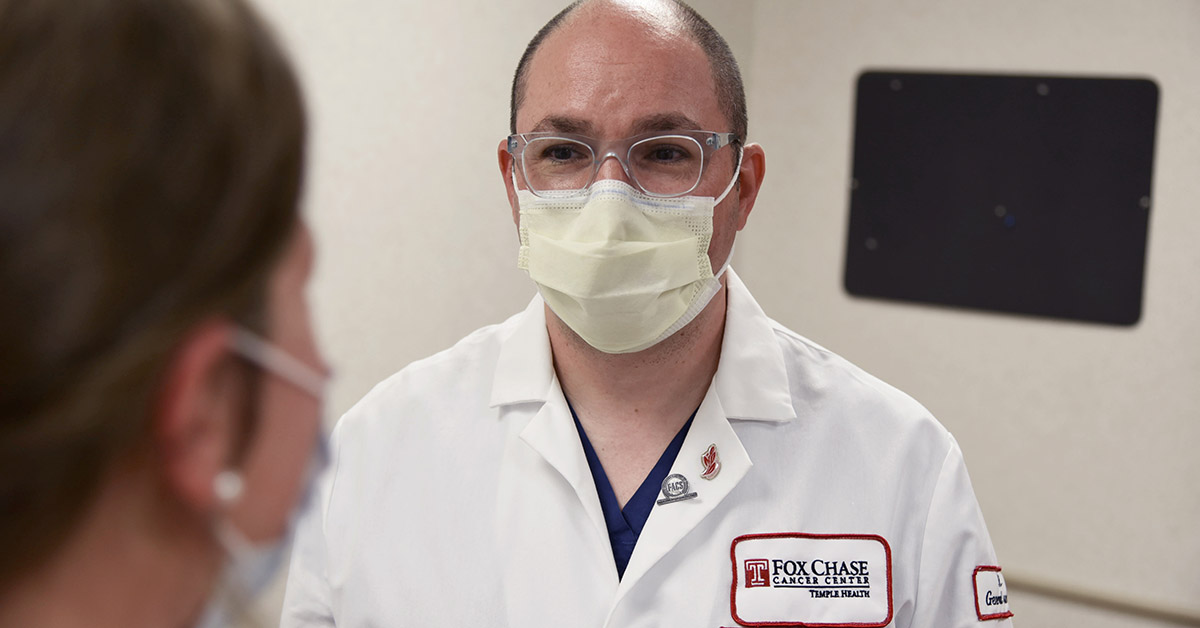
PHILADELPHIA (September 22, 2021)—In a recent study, researchers at Fox Chase Cancer Center examined over 200 patients with gastrostomy tubes and highlighted the need for a multidisciplinary approach to palliative care decision making for cancer patients.
A gastrostomy tube is a device that is inserted through the abdominal wall and into the stomach to either deliver fluid and nutrition directly into the stomach or for decompression in the setting of a bowel obstruction in the palliative setting.
“We really wanted to look at our experience as a cancer center with these tubes. What this study really highlighted was that, overall, we need to do a better job with palliative care and end-of-life decision making with patients,” said Jeffrey M. Farma, MD, FACS. Farma, the study’s lead author is chief of the Division of General Surgery and professor for the Department of Surgical Oncology at Fox Chase.
Farma worked on this study with medical students participating in the Temple University Lewis Katz School of Medicine Surgical Oncology Research Program at Fox Chase Cancer Center. Researchers examined clinical data from 242 patients with cancer who underwent a gastrostomy tube placement from January 2013 to December 2017. The average age of patients at diagnosis was 61 years old.
They looked at how many patients ended up getting consultations with either the palliative or supportive oncology team, nutrition consults, or social work consults, Farma said.
“Those really help to facilitate end-of-life decision making,” he added. “A lot of patients were not having these consults, and we found that with a multidisciplinary team approach patients were more likely to go home on hospice, which is an important decision at the end of a person’s cancer journey.”
Results of the study also demonstrated that half of the observed patients who received decompressive gastrostomy tubes were shown to have stage IV disease and died within one month of tube placement. Additionally, patients with tubes for nutrition saw no change in functionality, complication rate, or survival, regardless of chemotherapy status, the authors wrote.
“This was really a multidisciplinary study that highlighted some important points concerning patient care. I love working with the summer students in our Surgical Oncology Research Program, and this is just an example of the success that can happen when we support them,” said Farma.
The study, “Gastrostomy Tube for Nutrition and Malignant Bowel Obstruction in Patients With Cancer,” was published in The Journal of the National Comprehensive Cancer Network: JNCCN.